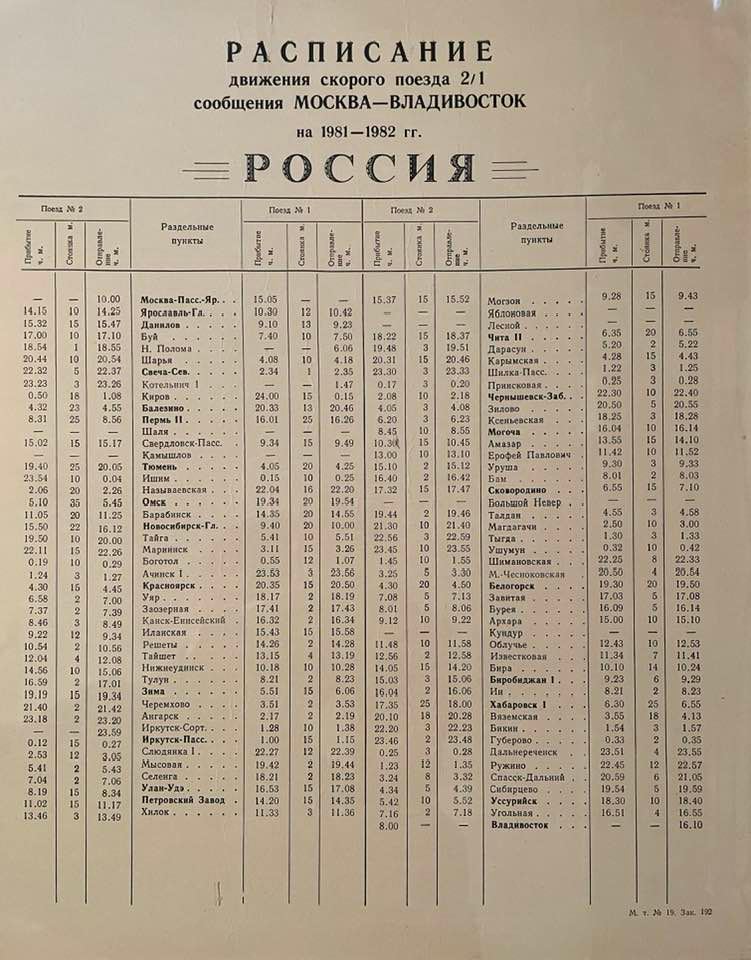MAY 3, 2022 – My trip along the Trans-Siberian Railway was a signature experience; one revealing the paradoxical axiom that at once our world is too vast to comprehend and too small not to cherish.
Timing was everything. The weather brought blizzards to some parts of Siberia, making the trip ever more Zhivagoan than it already would’ve been—especially when a Swedish passenger, a young woman with the voice of a nightingale, sang Laura’s Theme as we hurtled through white-out conditions*. At other junctures, with optimal seasonal and meteorological timing, a full moon and the rising/setting sun painted from a celestial palette onto a magical canvas. In so many ways, I found myself in exactly the right place (or window) at precisely the right time.
With indelible sound and color, countless exchanges and images—mostly sublime, some sordid—entered my memory.
Among the sublime were endless birch forests aglow in autumnal yellow; snow-quilted mountains south of Lake Baikal; gorgeous icons of an ancient Orthodox church in a Siberian village; exquisite Gogol short-stories devoured while I sipped tea dispensed from the carriage samovar—and won the proud hearts of the Russians who learned what I was reading.
Of the sordid scenes, I remember a prison camp and its inmates—visible from the railroad—a million miles from nowhere; and our not-be-messed-with, female carriage attendant who refused to allow a drunk onto the train in its slow, late night approach toward a village station. After exchanging angry words with would-be hitch-hiker, our attendant grabbed the interior handles inside the doorway, planted her boot on the inebriated man’s chest and sent him tumbling down a steep embankment. (I watched dumbfounded as the poor man’s cries were swallowed by the darkness. Russia, I realized, could be a brutally unforgiving place.)
On a journey as long as the one across the length of Russia, as much scenery developed inside the train as passed along outside. In later posts the reader will meet the more remarkable characters among my fellow travelers. Those encounters proved to be the hallmark of the trip.
For much of the journey—nine of 14 days (roundtrip)—I was the sole Western passenger and somewhat a celebrity. Often within minutes after the train departed from a station, word spread that an American was aboard, and I’d be greeted by newly boarded curiosity seekers who’d find their way to my compartment. Only a few among the hundreds of Russian passengers knew even a smattering of English, but by this time in my Grand Odyssey, I’d grown adept at mixing mime, drawings, and pointing at words in bilingual dictionaries to communicate effectively. People caught on quickly to this “language,” and given the twin travelers of time and patience aboard the Trans-Siberian train, I enjoyed long, substantive conversations with over 50 Russians.
For four days I traveled in the company of a few Westerners, whom I described in my letter home: “Neither shall I forget the deep, warm friendship of a dozen foreigners I met on the train from Moscow to Irkutsk. These people were in their twenties or early thirties, and individually or in pairs they were headed around the world. Amongst them were two lovely French girls, Françoise and Lisa; two Swedish girls from Luleå, Kaja and a most charming Annika; Björn, an astute economist from Austria (of Danish parentage); an enjoyable German, Reinhold; a typically nice Kiwi, Miriam; five likable Swedes from Stockholm; a colorful Texan named Doug. Within a few hours I was acquainted with all 13. After one day I considered all to be my good friends, and by the time we parted (they were headed straight for Khabarovsk and Nahodka while I stopped in Irkutsk) the bonds of friendship were the strongest possible. Although we arrived in Irkutsk at [5:30 a.m.], all my friends got out of bed and ventured out in the sub-zero cold [F] to bid me farewell. How can I ever forget such a warm gesture on such a cold morning?!” (Cont.)
___________________
*This woman from the town of Luleå at the north end of the Gulf of Bothnia, would later be at the center of my axiom, “The world is too vast to comprehend; too small not to cherish.” . . . A month after I left Russia, I traveled to England and visited friends I’d met in far flung places around the world. While one of these friends and I were at a pub in Bath, I met a Swede from . . . Luleå. I asked if she might know “Annika,” the “Swedish Nightingale” I’d met aboard the Trans-Siberian train. The Swede in the pub put her hand to her mouth in disbelief. “She lives right next door to me in Luleå,” she exclaimed, “and I know she was planning to take the Trans-Siberian Railroad on her trip around the world! Yes, you’re right—she has a lovely singing voice!”
(Remember to subscribe to this blog and receive notifications of new posts by email.)
© 2022 by Eric Nilsson
